
I have been in a phase of eating nut butter every day lately and had a friend ask me about the difference between them. I thought aha! Perfect topic! Nut butters are super scrumptious, super satisfying (fat makes us full longer), and highly nutritious. But they are not all created equal, and I know there are many questions about which ones to choose. So what is the criteria for choosing the healthiest nut butter?
Let me break it on down.
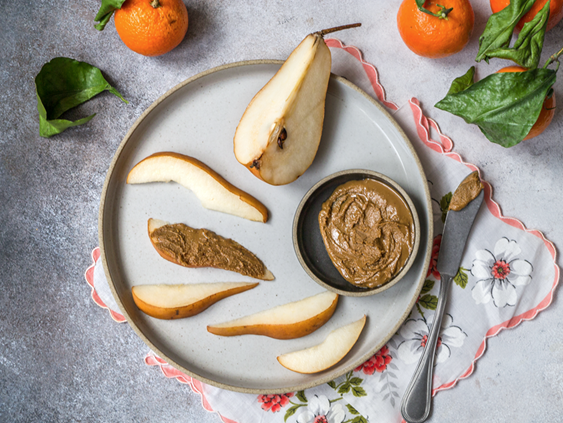
Which Nut or Seed Butter to choose?
I have heard many of you ask, which is the healthiest nut butter? Think about each piece of fruit or vegetable straight from nature. How can you say one is more healthy than the other? Well you can’t. They all serve a purpose and provide unique benefits unto their own. So, based on your taste and texture preferences, pick your favorite! But… try different varieties and try to keep the variety going throughout your life. Our body does best with a variety of nutrients coming in. Much like exercise movements! And… if you have an allergy or intolerance to a nut, choose a seed butter. Even if you don’t have an allergy, seed butters offer amazing benefits as well. We should try all the nut and seed butters!

Nut Butter Nutrition – here are some of the magical differences:
Almond Butter – Excellent source of manganese and vitamin E; good source of magnesium, copper, phosphorous, and fiber.
Cashew Butter – Excellent source of copper; good source of magnesium, manganese, vitamin K, phosphorous, and zinc.
Peanut Butter – Excellent source of manganese; good source of folate, magnesium, phosphorous, vitamin E, and niacin (Vitamin B3).
Walnut Butter – Excellent source of manganese and copper. Walnuts also contain significant amounts of potassium and magnesium. They are also very high in omega 3 fatty acids (anti-inflammatory), melatonin, ellagic acid, vitamin-E, carotenoids, and polyphenolic compounds. These compounds are known to have potential health effects against cancer, aging, inflammation, and neurological diseases.

Seed butters deserve a nod too!
Sunflower Seed Butter – Sunflower butter is a powerhouse, supplying generous amounts of vitamin E, copper, magnesium, and B vitamins, as well as iron and zinc. A two tablespoon serving also packs 7 grams of protein and 4 grams of fiber.
Hemp Seed Butter – 9 grams of protein per two tablespoon serving, and is rich in vitamin E and minerals, including phosphorus, potassium, magnesium, sulfur, calcium, iron, and zinc. It also provides essential fatty acids, which have been shown to help curb heart disease risk.
Pumpkin Seed Butter (aka pepitas) – It’s packed with manganese, phosphorus, magnesium, copper, zinc, and iron. Plus, a two tablespoon serving can provide up to 10 grams of protein along with a few grams of fiber. I love blending it into smoothies, and using it as an ingredient to thicken savory plant-based soups, like butternut squash or lentil. I’ve also folded maple syrup and pumpkin pie spice into pumpkin seed butter, and tossed it with spaghetti squash for a healthy snack.
Watermelon Seed Butter – In two tablespoons, you’ll find 8 grams of protein, and more than 10% of your daily iron needs. Watermelon seeds also provide B vitamins, magnesium, phosphorous, iron, potassium, sodium, copper, manganese, and zinc.
Criteria for selecting nut and seed butters:
- No Added Sugar – Some nut butter brands add sugar to – no surprise here – make it taste better! Most Americans eat too much added sugar. Added sugar is not needed in nut butter – choose brands with no added sugars most of the time. Look at the ingredients list and be on the lookout for ingredients like “sugar, maple syrup, etc.”
- Low sodium – Some nut butters add salt. Some salt is fine, but choose brands with lower (or no) salt added most of the time.
- No added hydrogenated oils – If you see hydrogenated oils on the ingredients list, this means there is trans-fat. Trans fat is a “man-made” fat that was created to increase the shelf-life of foods (aka make them last longer before going bad). Trans fats can increase total blood cholesterol, bad “LDL” cholesterol, and triglyceride levels. It also lowers good “HDL” cholesterol. This is why you should limit these fats whenever possible as they can significantly and negatively affect health (not to mention they are completely unnecessary in nut butter).
- Avoid unneeded, added saturated fats – All nuts naturally contain some saturated fat, don’t worry about that. But, some nut butters add coconut or palm oil which are unneeded and contain a high amount of saturated fat. Nuts have a great deal of fat, so don’t pick one with ingredients with MORE oil that’s added.
Ideally, the ingredients list for your nut butters will be: nuts (i.e. peanuts), and maybe salt. But not too much salt.
I am naming names of the best types of nut butters! Approved Nut Butters (some are seed butters) I suggest (not sponsored) with their ingredients (READ THEM):
1.Kirkland Signature Almond Butter
2. Crazy Richards Peanut Butter
3. Sun Butter No Sugar Added Sunflower Butter
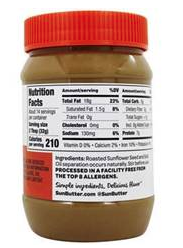
4. Trader Joes Mixed Nut Butter
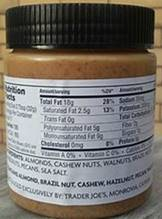
5. Nutzo Nut Butter
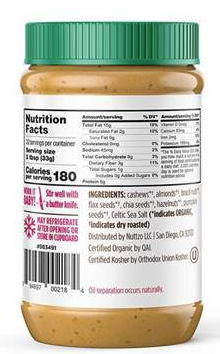
6. Vor Walnut Butter
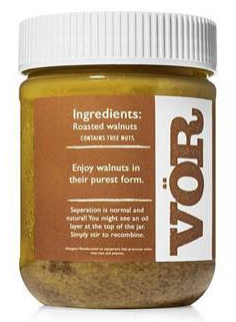
So there is the list for you of approved nut and seed butters and why they were chosen. But know that this list will likely change because product formulas and brands change. So keep that ingredient reading up!
And if you wish to control the ingredients and quality of your nut butter, make your own! All you need is a high quality blender or food processor. Check out how here.
Miriam Jirari MPH, RD, CTP, Certified Intuitive Eating Counselor
Studio SWEAT Registered Dietitian
Resources: https://www.womenshealthmag.com/food/a19970613/best-nut-butter/


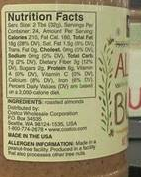
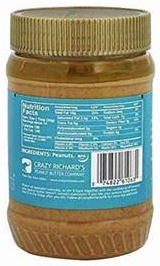

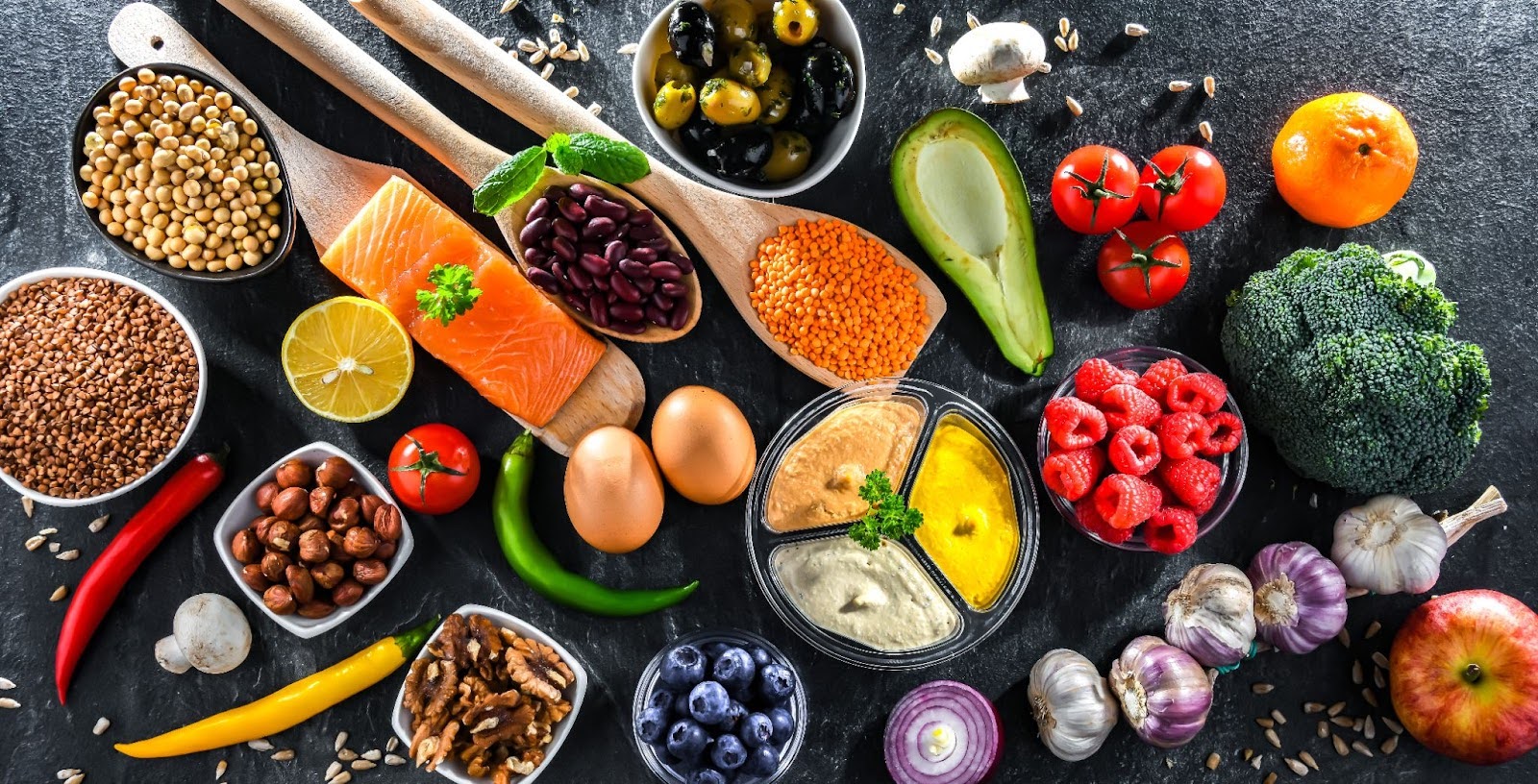





Comments - 0